Though they could usually appear aloof and detached, cats acknowledge the robust bond with their homeowners. Caring for and connecting with our pets makes us a central aspect of their lives and one they’ll sorely miss upon our passing. Cats grieve for his or her homeowners in some ways, coping for a number of weeks after they lose their family members. Let’s discover the extent of how cats really feel grief and what you are able to do to assist them heal.
Do Cats Grieve for Their Homeowners?
Most individuals imagine cats can grieve, and anecdotal proof and restricted analysis assist that assumption to an extent. Cats won’t be capable of grasp the idea of their proprietor dying, however they’ll sense their absence. They type complicated social connections regardless of their status as loners, creating attachments with sure people, significantly homeowners, that may have a major impression when they’re severed.
Due to domestication, cats retain many juvenile behaviors into maturity. Researchers liken a canine’s attachment to homeowners as an infant-mother sort of relationship, and lots of theorize cats have an analogous bond with their people.
Components of this dynamic are a necessity for proximity and a sense of stress upon separation. When cats lose their attachment determine, the upheaval of their life has emotional, behavioral, and physiological results.
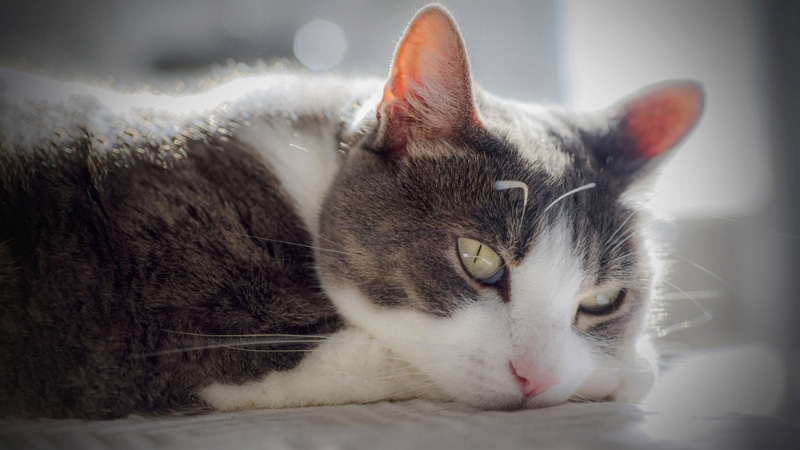
How Do Cats Grieve?
Socialization is important to a cat’s potential to thrive. Whereas cats are extra adaptive to group modifications than canine, they nonetheless bond with different family pets and act as dependents for his or her homeowners. As these figures play important roles within the cat’s life as companions and suppliers, their loss may cause behaviors akin to separation anxiousness.
Phases and Indicators of Cat Grief
The ASPCA’s Companion Animal Mourning Challenge explored the impact of shedding an animal companion on cats. The research discovered 65% of cats confirmed behavioral modifications indicative of grief, together with:
- Lower in urge for food
- Sleep schedule disruptions (e.g., oversleeping, insomnia)
- Change in sleeping location
- Modifications in vocalization
Stress behaviors don’t come up solely after an animal’s demise. Separation anxiousness can happen from any surprising departure, whether or not an attachment determine dies or just leaves for just a few hours.
When dealing with shedding a companion animal, cats observe a bi-phasic grief course of. The primary part is energetic. Cats wish to reunite with their misplaced companion, so that they protest their absence and seek for them. Elevated exercise and modifications within the frequency and quantity of meowing are typical. Within the second part (passive), cats are extra withdrawn. They might have a decreased urge for food or interact in hiding behaviors.
Frequent behaviors throughout this course of embrace extreme clinginess to homeowners and searching for out the deceased animal’s favourite spot. Cats could reply in another way when the proprietor dies. Within the case of proprietor separation, anxiousness may cause inappropriate elimination (usually within the proprietor’s mattress) and, in additional extreme instances, compulsive overgrooming and aggression.
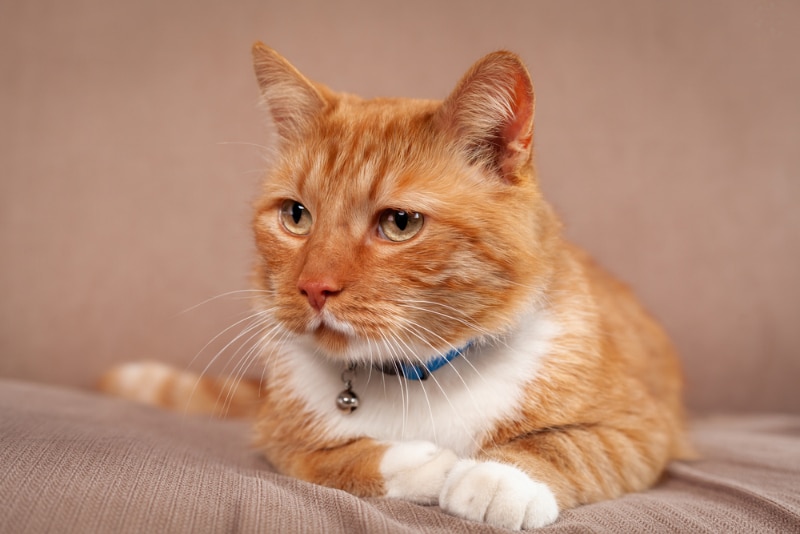
Is It Precise Grief?
Though it’s straightforward to venture human feelings onto pets to interpret their behaviors, we mustn’t overlook that cats don’t assume like us. We are able to’t all the time ensure of the character of their grief-like behaviors when different pets die.
Are they clingier as a result of they want consolation, or is there much less competitors on your consideration? Do they go to their buddy’s favourite spot out of longing, or are they claiming territory? Are they consuming slower on account of melancholy or much less useful resource competitors?
Concerns like these don’t counsel apathy or selfishness however somewhat spotlight that we are able to’t assume the explanations behind all their actions. There’s nonetheless a lot to point they really feel real misery when relations die. As an illustration, elevated vocalizations and looking out behaviors happen within the hopes of a reunion, exhibiting the meaningfulness of that determine’s presence.
Cats probably don’t comprehend demise or really feel guilt, anguish, sorrow, and different complicated feelings grownup people face with the passing of a cherished one. They show separation stress in a method much like infants, utilizing the forms of protest and detachment behaviors that happen within the coping course of alongside grief.

How Lengthy Do Cats Grieve?
Cats finally modify to their proprietor’s demise. After a companion animal dies, preliminary behaviors like elevated vocalizing and looking out usually resolve inside about two months. After roughly 6 months, they develop into accustomed to the brand new scenario and not present indicators of grief.
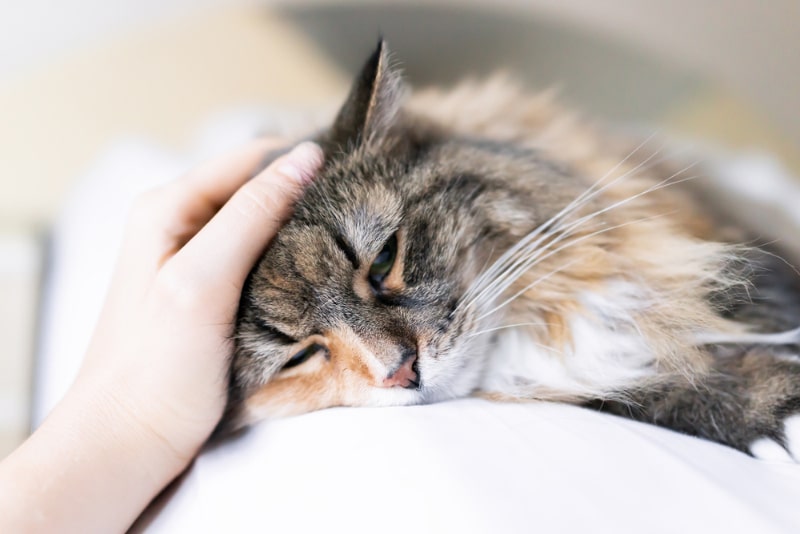
5 Methods to Assist a Grieving Cat
Since cats grieve in methods much like infants, sure facets of the method could also be kind of significant than we notice. They don’t have a posh understanding of demise, so that they don’t essentially want closure.
Seeing a companion’s lifeless physique, as an illustration, doesn’t have an effect on a cat’s behaviors, exhibiting they don’t digest the finality of demise or use that viewing to assist them alongside the grieving course of as we’d throughout a wake.
If you happen to inherit a cat whose proprietor handed away, your function is to assist them transfer on to the following part with out turning into hung up on the passing. There’s no speaking it out or counseling a cat via their emotions of loss. They want you to present them a way of normalcy. The next are just a few methods you are able to do this to assist a cat cope after their proprietor dies.
1. Present Consideration and Play Time
One motive cats miss their homeowners is the lack of a play buddy. Cats want socialization and stimulation, and you may assist them acclimate to their subsequent part of life by offering ample consideration. Bonding and taking part in will profit your cat mentally in the intervening time and assist set up you as their new attachment determine.
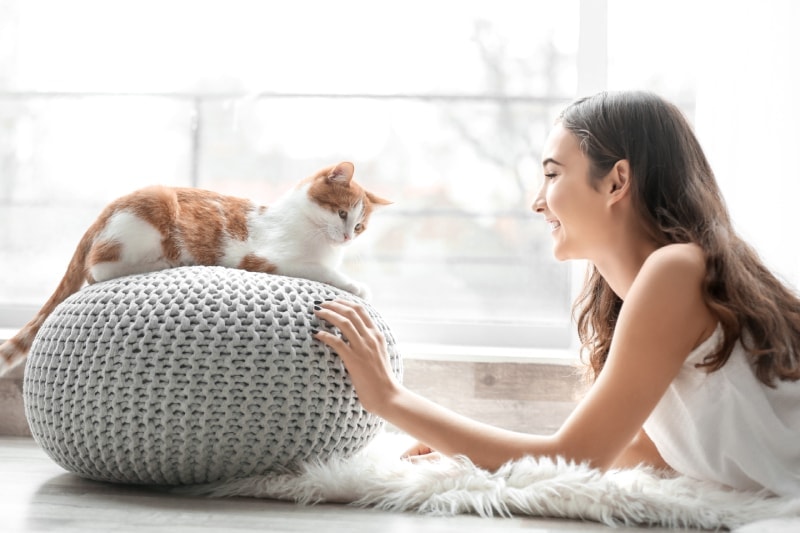
2. Improve Enrichment Across the Dwelling
Cats confined to the home have fewer probabilities to fulfill their curiosity and train their minds and our bodies. You possibly can fill the home with enrichment supplies to maintain your cat busy and keep away from the bored or agitated damaging behaviors that may happen on account of separation and disruption to the routine.
Timber, scratching posts, and rotations of enjoyable treats and toys will positively direct their energy.
3. Preserve the Routine
Like moms to infants, homeowners give their cats a way of consolation, safety, and certainty. They create a routine {that a} cat, as a dependent, can depend on to remain comfortable and make the day predictable. Cats lose that familiarity when the proprietor dies, inflicting them to grieve.
You possibly can’t maintain the whole lot the identical. The house setting shall be completely different, and also you’ll not often be capable of observe the previous proprietor’s schedule. However attempt to keep the cat’s identified routine in any method potential.
Use their model of meals, arrange their toys like of their previous dwelling, keep the identical feeding schedule, and take another steps that might make the setting recognizable. Give attention to day-to-day consistency to get your cat comfy as shortly as potential.
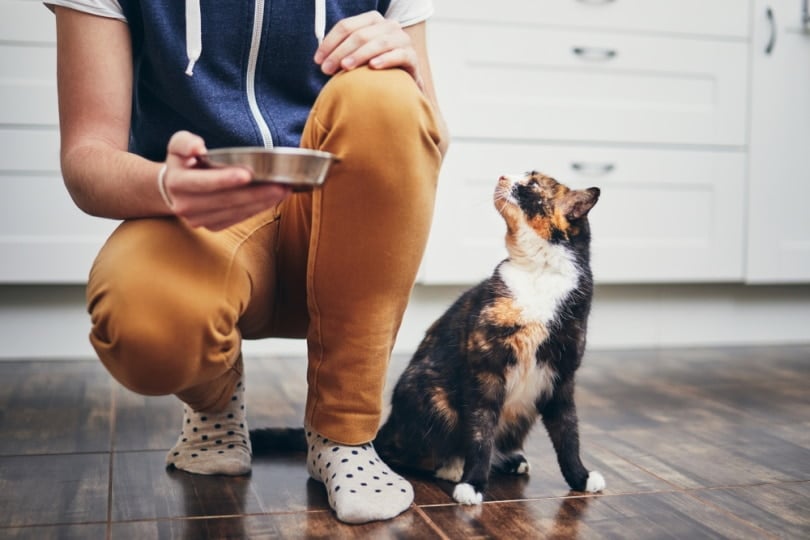
4. Monitor Your Feelings
Home cats are delicate creatures able to understanding constructive and unfavorable feelings in people and different cats. They take emotional cues from homeowners, utilizing them as a reference to reply to objects and conditions. After they see happiness, they reply positively. After they sense anger, they reply negatively.
Acknowledging that is essential once you’re additionally feeling the lack of your pet’s proprietor. You’re going via a grieving course of that always comes flooded with uncooked and tense feelings. As these manifest outwardly in your speech and actions, the cat will solely develop into extra distraught.
Containing your feelings isn’t straightforward, however sustaining positivity and specializing in the brand new routine on your cat’s sake will speed up their coping course of.
5. Discuss to Your Vet About Medicine
In case your cat’s separation anxiousness is excessive, seek the advice of your vet. They can advise on in-home treatment options like dietary modifications or pheromone diffusers and prescribe remedy if wanted. Medicine usually are not a single answer and should solely come secondary to enhancements to the cat’s way of life.

Ultimate Ideas
Home cats grieve for his or her homeowners but not in the way humans grieve misplaced family members. They solely perceive the overall absence and, missing our emotional growth, reply to it with comparatively childish stress behaviors.
Their caregiver is gone, as is the familiarity and safety of their routine. With homeowners sitting firmly within the middle of their lives, cats really feel like their world is crashing down and can want each little bit of consolation and consideration to assist them cope.
Featured Picture Credit score: Shyjo, Shutterstock

